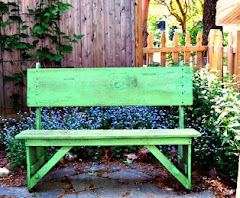I do not want this blog to be all about dead people, but, really, there is something that feels so fulfilling in talking about folks who have passed before us. No matter what we say, they cannot be here to refute it or to change it in any way. We are the arbiters of their stories. Dead men really do not tell tales, they can only listen to what we say and ponder as to what it is we mean. Not that I really know that, since I have never been dead. In reality, I have no idea if the folks who are gone from this Earth have any connection to us. I would like to think they do. I would prefer that some of them did, though I would rather than some of them did not.
My dad is one of those people I just hope is not “watching over us.” He was not a nice guy. You know what I mean? Some people are simply not nice. No matter how much we try to cut through their mean exterior, we sometimes only find another penurious layer of small heartedness and a self-serving rapaciousness that is beyond redemption. Yes, my dad was such a person. Throughout my life, my ability to affect my father’s emotional state was non-existent. He was unabashedly uninterested in my life or the life and needs of my siblings.
It is a long and ignoble story, yet it is one that I occasionally have to release from its bounds inside of my head. It is one of those stories that I just tell. Like throwing my hand on the table at a poker game, every so often I tell this story. I often wonder if I tell it because I want to make certain it is real, or if I want to make sure that I can touch its truth. The integrity of this story is irrefutable. The reason I know my story is true is because my siblings and I all know it. We all have a piece of it. We have firsthand knowledge of one or other parts of this story, because in stages, each of us has lived it. We experienced this story in layers, each of us in our own time, with our own set of grievances and painful exposure to its truth.
Where to begin is often my issue. Is a good place to start where my father left my mother with my sister and me in Cuba and came to the US looking for…what? Anything but us. Anyone except my mother and “her” kids? I don’t really know exactly where it starts. It may start at the point where my mother drags my sister and me to the US to try to get my dad back. She finds him, and there we are, just one little un-happy family. Perhaps the opening focus of my story should be when my mother drops my sister and me at my grandmother’s house in Cuba and leaves to chase my father around the East Coast. My mom actually returned to Cuba a year later with a newborn; my brother Joey; Joey is the one who died at forty-eight years old, the one this blog is dedicated to. My grandmother did not feel that she could raise my sister, Joey, and me, so she asked my mom to take Joey back to the US with her. My mom did that, and that is where my story begins in earnest.
After Castro came to power in Cuba, there were many Cubans; my grandparents included, who were supportive of him. They felt that Castro was a far sight better than Batista, and that Castro would bring prosperity and respect to the Cuban nation. My grandfather, a Castro sympathizer was not well appreciated by Castro, and one day my grandfather disappeared. He came back a time later, a changed man, having been tortured and abused by Castro’s band of thugs. My grandmother realizing that the political climate in Cuba had gone from bad to worse knew that she needed to get her granddaughters out of Cuba. It was either leave or we would be indoctrinated into Castro’s minions, like so many of our peers.
My grandmother endured abuse and shame to get my sister and I visas for entry into the US. Her neighbors called her “gusano” (worm). Eventually, we were allowed to leave Cuba. I can still remember my grandmother waving goodbye to my sister and me as we boarded the plane. My last memory of her was seeing tears rolling down her face while she fiercely waved her little white starched hanky.
We arrived in the US and were delivered to my parents at Kennedy airport. I remember the drive up the West Side Highway. The buildings and billboards were so amazing to me. I was freezing cold. I am certain my sister was as well. No one had brought coats for us. It was to be the first of many moments of benign neglect by our parents. I remember wondering who these people were. I had dim memories of my mother, but the man driving the car seemed foreign to me. I have so few memories of my dad; I still cannot place him for years at a time during my entire childhood.
Arriving in New York was the beginning of a lifelong odyssey for my mother of being left by my dad, finding him, and moving us to wherever he was. It was a hopeless exercise in chasing the impossible. When I look back on it now, it was clear that my dad did not want us, and did not want my mother. It has also become quite evident that my parents would have left my sister and I in Cuba for eternity had not my grandmother decided to get us out of the country.
My parents were an odd combination of co-dependence, neglect, and eternal suffering. My mother was the “saint” or “martyr,” while my father was the bad one, and the kids were…what? I don’t really know what we were supposed to be. Perhaps at one point we were insurance so that my dad would stay with my mom. It did not work out that way, which surprised my mom to no end. My parents had no regard for our child like needs and wants. We were on our own.
The relationship, which my parents shared, was an abusive dance of dependence and hatred/love, which is still going on, even after my father’s death. About ten years ago my dad’s health began to fail. My mother took this opportunity to create a theatre of complete dependence for my dad. My dad became dependent on my mom for every single thing he needed to survive. From putting sugar in his coffee to actually stirring it, my mom’s duties never ended. He was mean and nasty to my mom, in private and in public. My mom created scenarios, which would make her seem the victim and elicited sympathy from many people inside and outside of our family. It did not fool me. My parents in many ways have been like con artists their entire lives. Conning others and conning each other. They operated outside of the norm of everyday decency and regard.
The parents I grew up with simultaneously abandoned us, neglected us, disregarded us, and stole any magic that our childhoods might have had. When my father died last Thanksgiving, I wasn’t sure how I would feel. I knew that I had no love for him, at least not in the classic way a child would love a father. Reaching into my heart, I examined my emotional self to see if there was anything there. In the end, there was nothing. No feeling, no emotion, nothing. A big blank. I waited through the nursing home scene. I waited through the death scene. I waited through the funeral, through getting rid of his clothes, through moving my mom out of the house into an apartment, still nothing. It is sad that there was never any redemption in our relationship. The last coherent words I heard him speak were mean and cruel epithets that he hurled at my mother while he was in the hospital. He never changed, he never mellowed, he never once thought of anyone but himself. What can you do with someone like that? I ran away from his crazy-making many years ago. There was no way I would ever go back. Even when he was dying, my father never became real to me. There was never a time when I could say that I felt something for this man. I spent many years refusing to see him. Many more years were spent learning how to live with the fact that my mother had always chosen him over me. None of my siblings or I were ever enough for my mom. My dad was the person she wanted, the person she chose, and the person she cared for, fought for, and yearned for. This is true even today.
We moved my mom into her apartment today. This is the first time in sixty-one years she has not lived with my dad. I feel for her in that way that you are sad for anyone who has lost a partner of so many years. Yet, she is my mother, who aided and abetted my father in disregarding everything my siblings and I yearned for and needed our entire lives. Love is a funny thing. I am quite sure I love my daughter. I know this because I would kill for her. I know this because there is nothing my daughter could ever do that would make me turn away from her. I know this because when I have had a choice to make, my daughter was the winner every time. My parents were essentially strangers who let me live in their house. I owe them no allegiance, and I owe them no support. I am still waiting to feel something. I may be waiting a long time, perhaps forever.







